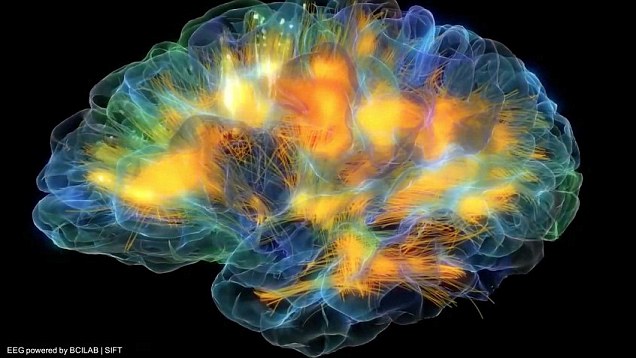Neurorecital at the Verbier Festival Blends Music and Mind: Pianist Nicolas Namoradze Performs with Live Brain Imaging
In a performance unlike any other, pianist and composer Nicolas Namoradze brought audiences at the Verbier Festival deep inside the mind of the musician. His recital, titled Neurorecital, combined music by Bach, Debussy, Scriabin, and Ravel with a live visual projection of his brain activity — creating a multisensory experience that was equal parts concert, neuroscience demonstration, and philosophical inquiry.
Using cutting-edge technology developed in collaboration with Neuroscape at the University of California, San Francisco and the Brain Dynamics Lab at the University of Calgary, Namoradze offered a glimpse into the inner workings of the musician’s brain as he performed. At the heart of the display was the Glass Brain, a dynamic visualization system that showed areas of Namoradze’s brain lighting up in real time.
“This project invites listeners to engage with music in a fundamentally new way,” Namoradze told the audience. “We’ve been able to collect brain data in an entirely novel fashion, which represents a breakthrough in research. It’s opened the door to consistent, analysable brain data from live music-making for the very first time.”

The brain scans, captured during repeated practice sessions, were synchronized to Namoradze’s live playing during the recital. The result? A kind of audiovisual sonata, with luminous synaptic activity dancing across the screen — a fireworks display of cognition. Different works revealed different neural patterns: Bach’s contrapuntal clarity, Debussy’s dreamlike textures, Scriabin’s mysticism, and Ravel’s refined virtuosity all lit up the pianist’s mind in unique ways.
At the conclusion of the performance, Namoradze was joined on stage for a Q&A by neurologist Professor René M. Müri, with music journalist Charlotte Gardner moderating. Their discussion dove into how such visualizations could impact our understanding of performance, interpretation, and the emotional reach of music.
While the event marked a debut at Verbier, Namoradze is no stranger to groundbreaking achievements. He rose to international fame in 2018 as the winner of the Honens International Piano Competition in Calgary — one of the world’s most prestigious prizes for pianists. That Canadian connection continues to shape his career: not only did Honens launch him into the spotlight, but his scientific collaboration with the University of Calgary’s Brain Dynamics Lab underscores the ongoing ties between his artistry and Canadian institutions.
Since his Honens win, Namoradze has performed in major venues around the world, from Wigmore Hall and Carnegie Hall to Tokyo’s Bunka Kaikan and Berlin’s Konzerthaus. His recordings have received top honours from BBC Music Magazine, Gramophone, and Limelight, and he has emerged as one of the most distinctive and thoughtful artists of his generation.
In addition to his concertizing, Namoradze’s academic pursuits have pushed boundaries in both music and science. His doctoral thesis on mathematical models of musical perception won the Barry Brook Award and was published as Ligeti’s Macroharmonies. His postdoctoral studies at King’s College London deepened his interest in cognitive science, culminating in interdisciplinary projects like Neurorecital and a digital series on the IDAGIO streaming platform exploring the connection between music and the mind.
The Neurorecital project is far from over. Namoradze will bring the performance to Lancaster University this fall, offering another audience the chance to witness not just the music but the miracle of the brain at work.
In an era where AI can mimic music and algorithms shape our listening habits, Namoradze’s project reminds us of the deeply human — and deeply mysterious — forces behind musical performance. With the brain lit up in brilliant colour, the audience at Verbier saw not only how the mind creates music, but how music, in turn, animates the mind.
In a world increasingly shaped by technology, Neurorecital offers a rare synthesis of art and science — not as opposing forces, but as partners in discovery. Rather than reducing music to data, the project reveals just how rich and complex the act of music-making truly is. By illuminating the inner workings of the mind in real time, Nicolas Namoradze invites us to reconsider not just how we hear music, but how we experience it — intellectually, emotionally, and even neurologically. It’s a powerful reminder that while music may speak to the heart, it is also born in the deepest workings of the brain.
